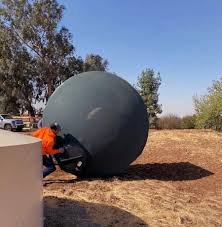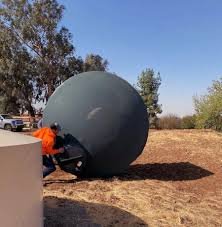BY LOIS HENRY
SV Journalism Collaborative
More than 20,000 San Joaquin Valley residents could be left high and dry, literally, by Sacramento politicians intent on using $17.5 million that had paid for water trucked to their homes to help fill California’s gaping two-year $56 billion deficit.
A local nonprofit that has been hauling water to those residents sent a letter recently to Governor Gavin Newsom and top leaders in the Legislature begging them to reinstate the money in the ongoing budget negotiations.
Bottom of Form
“Cutting funding for such a crucial program would have devastating effects on rural and disadvantaged communties by immediately cutting them off from their sole source of water supply, and doing so with no warning,” states the June 11 letter from Self-Help Enterprises, a Visalia-based nonprofit that helps low-income valley residents with housing and water needs.
The letter continues that the water tank/hauling program, which has been funded through the California Emergency Relief Fund, provides water to families in Kern, Kings, Tulare, Fresno, Madera, Merced, Mariposa, Stanislaus and San Joaquin Counties. Self-Help’s goal under the program is two pronged – provide emergency water and work toward permanent solutions whether that’s fixing domestic wells, connecting residents to larger, nearby systems, or some other solution. It has found permanent solutions for 282 households in the past 17 months, the letter states.
However: “Without interim solutions like the water hauling program, families relying on relief from organizations like SHE won’t be able to wait for sustainable, long-term solutions and will be forced into catastrophic decisions such as walking away from their homes.”
State Senator Melissa Hurtado, (D) who represents a chunk of the valley from Bakersfield to Hanford, said she had been talking with Self-Help and was hoping to find a way to make sure this vital service isn’t cut.
“Obviously, I’m not happy about it,” she said in an interview with SJV Water. “People in Sacramento don’t really understand this region. They think since we had all that water last year, the flood water, and there’ve been reports about so much recharge, that all this water is available to everyone. But there are still people living in the shadows. They don’t have the ability to recharge and they still don’t have access to water.”
Hurtado noted this is one of many cuts being being proposed and “It’s not a done deal.”
This potential funding cut comes at a time when numerous groundwater sustainability agencies are seeking out Self-Help to develop domestic well programs to include in their groundwater planning.
Groundwater plans in several valley subbasins were deemed inadequate by the state for, among other things, not being protective enough of domestic wells. Those subbasins, including the Kern, Kaweah, Tule, Chowchilla, Tulare Lake (Kings County) and Delta-Mendota (Merced County), are now coming before the state Water Resources Control Board, which will decide if state intervention is needed.
The Water Board already put the Tulare Lake subbasin on probation April 16. Probation is the first step toward a possible state takeover of regional pumping. The Tule subbasin comes before the board Sept. 17, then the Kaweah on Nov. 5 and the Kern in January 2025.





